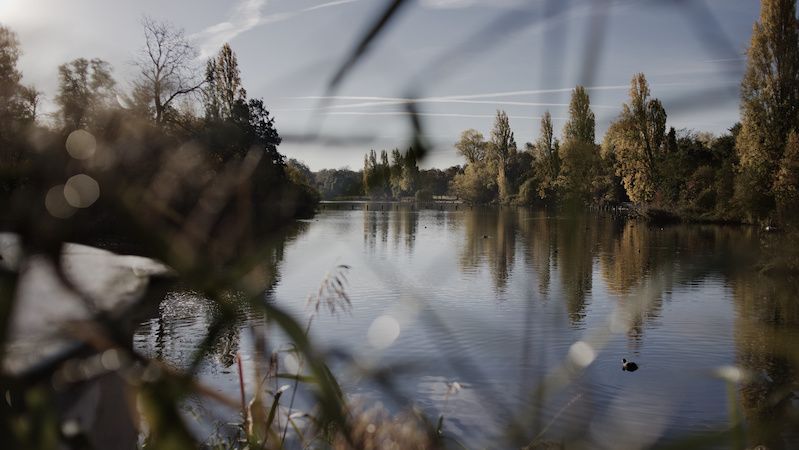
Are we moving away from open plan living?
New research suggests a permanent shift away from open plan interiors as people look to spend more time working from home.


| In our Housing Futures survey, conducted in August last year, 45% of home movers said they hoped their new home would have closer proximity to nature in order to benefit their mental health. Over the course of the global pandemic, there is little doubt that many of us have gained a far greater appreciation of nature and its direct influence on our mental and physical wellbeing. These benefits of course, are nothing new. In fact, nature therapy (or ecotherapy) can be dated back as early as the 6th century BCE, when Cyrus the Great planted a garden in the middle of the city of Pasargadae in Iran, as a way of improving the health of its residents. Today, closeness to nature is widely recognised as a key facilitator in restoring and retaining mental quiet, calmness and a positive outlook, and is often thought of as a refuge from built-up metropolitan areas. In order to explore this further, we look to cognitive psychological theory as a basis for understanding the true benefits of the great outdoors on our mental wellbeing. The effects of urban environments vs nature on cognitive function Kaplan & Kaplan’s Attention Restoration Theory (ART), proposes nature as a treatment for a number of declining or negatively impactful psychological processes, including failing memory, reduced problem solving and mental fatigue. At its core, ART suggests that urban environments are filled with distractions that induce ‘hard fascination’. This is a state where our attention is focused on highly stimulating activity – activities that absorb our attention so completely that we are denied the ability to think introspectively, or reflect on the actions around us. For those living in cities, this state of being can often prove too great a stress on mind and body, leading to cognitive fatigue. In contrast, natural environments provide sources of ‘soft fascination’ – activities and stimuli that hold our attention in a less taxing way, while stirring an emotional response. Nature’s abundance of ‘soft fascinations’, such as the gentle crash of the sea or the rustling of leaves in a breeze, allow us to focus on tasks associated with healthy brain function. It stands to reason that by spending a longer period of time surrounded by gentle distractions, we are able to reach a state of relaxation in which we become calm and reflective, allowing our brains to process on more than just one level. The positive effect of nature on mental health Nature’s ability to lift our spirits isn’t restricted to attractive scenery. The various ways in which we interact with green spaces and wildlife, likewise elicit a range of positive effects. Take gardening as an example. A 2015 study found that during green-fingered pursuits we feel more relaxed and comfortable than during basic computer-based tasks. Subjects’ blood pressure levels were considerably lower when handling an indoor plant compared with time spent working with technology. To give their crops and flowers the best chance of survival, gardeners are also required to use creativity and problem-solving skills. The satisfaction of nurturing another living thing can reduce feelings of stress and leave us feeling more relaxed. The simple nature of tending plants makes it ideal for practising mindfulness and ‘being present’ in what you are doing. The benefits of focusing our attention on our immediate surroundings and switching off from our everyday worries are echoed by Kaplan & Kaplan. The psychologists suggest that the sense of being separate from one’s usual thoughts and concerns is a key component of a restorative environment. Exercising in nature can also be seen to improve much more than just our physical fitness. When we take part in physical activity our body releases feel-good hormones, or endorphins that contribute to our general well-being. For some of us this could mean visiting a local park. Field in Trust research found that our public spaces are worth £34.2 billion per year to the wellbeing of the UK adult population. Studies suggest that sustaining exercise over a period of time and seeing positive results, while clearly beneficial for our physical wellbeing, goes further in boosting our confidence, and so endowing us with a lasting positive mindset. Making the most of your outdoor space While not all of us have the luxury of the countryside on our doorsteps, for those living in cities and suburbs, our gardens, courtyards and balconies can go towards offering that all-important slice of nature. Those without access to a private outdoor space should look towards their local amenities and their ‘soft fascinations’. According to our research, access to green spaces proved to be the second-most desirable fitness facility for homebuyers. It comes as no surprise that the frequent use of local parks and green spaces is estimated to save the NHS around £111 million per year in reduced GP visits and referrals. In metropolitan areas, the growing desire for this access to natural space was reflected in our Housing Futures survey, which found balconies to be the most important feature for London movers in their new primary home. Indeed, 34% of homebuyers in the capital said they would like a balcony compared to the national average of 19%. How then, can we best use our private outdoor space? Simply flicking through a book beside a window with a view, or investing in furniture to dine ‘al fresco’, can help us feel more connected to the world beyond our four walls. 55% of Housing Futures respondents agreed that ‘large windows letting sunlight in’ offered them some kind of psychological comfort. Meanwhile, there is nothing like growing your own produce to fill your plate. Gardening ideas for even the smallest outdoor spaces have advanced drastically in recent years. Vegetable walls borrow principles from vertical farming to enable those with limited space to grow their own ingredients from home. Methods for growing plants in shaded areas and on rooftops unlock further possibilities. Children can also play a key role in such outdoor activities. According to The National Trust, children today play outside for an average of just four hours a week, compared to the eight hours of outdoor play their parents enjoyed when they were young. In an age of tablets, TikTok and games consoles, the gentle restorative impacts of the great outdoors should not be disregarded in a child’s wellbeing any more than is for the working adult. Closeness to nature is achievable, after all, even in the smallest of spaces. View our previous articles on the future of town and country living. |